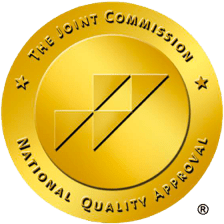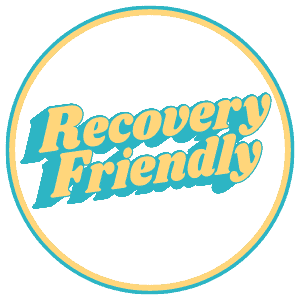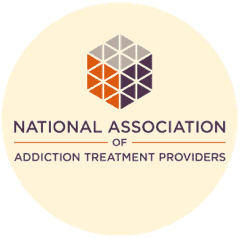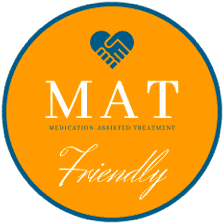Drug and alcohol addiction can hurt your mind, body, and relationships. Recovering from substance abuse and addiction requires patience, dedication, and comprehensive treatment to address its complexity.
But not all substance abuse treatment programs are the same. Rehab is available in many locations and levels of care. The length of rehab can also vary depending on your individual needs, but most people spend somewhere between 30 and 90 days in rehab.
If you or a loved one are looking for addiction help, reach out to the knowledgeable team at Next Step Recovery to explore your North Carolina treatment options or find support at any stage of recovery.
How Long Does Rehab Last?
Addiction recovery occurs in progressive stages and across several levels of care. Together, the steps of recovery can help people address addiction’s physical, emotional, and behavioral aspects. Each stage is designed to meet people where they are and help them work toward lifelong sobriety.
Assessment
Before you can begin an addiction treatment program in North Carolina, a doctor or addiction specialist will assess your needs and recommend a level of care or type of treatment. This assessment generally takes about two hours, but this time can vary between specialists. They may use the information gained from the evaluation to determine the length of rehab you’ll need–although this can change as your recovery progresses.
The evaluation will involve questions about your medical and mental health, substance use, family history of addiction, prior treatment history, and other relevant information. It may also include lab tests and a physical exam.
Detox
Detox typically lasts between 2 and 7 days but can be adjusted to meet people’s different needs. Many people experience uncomfortable–sometimes dangerous– physical and emotional withdrawal symptoms during detox. Withdrawal symptoms often begin within just hours of your last drink and may include:
- Fever
- Tremors
- Nausea
- Sweating
- Restlessness
- Irritability
Some people develop hazardous symptoms, including seizures, hallucinations, and agitation.
The severity and duration of your symptoms depend on the substance you used, how you ingested it, your general mental and physical health, and other factors.
Many people find withdrawal symptoms so uncomfortable that they relapse–begin drinking again–before detox is complete. Going through a medically-supported detox program can significantly increase your chances of having a safe, complete detox from drugs or alcohol.
During detox, medical and support professionals assess and treat patients’ withdrawal symptoms with medications, emotional support, and holistic therapies that provide soothing relief. With this support, people are more likely to have a full detox and be prepared to start a treatment program.
Treatment
Comprehensive treatment programs in North Carolina can last anywhere from 30 days to a year or longer, depending on the severity of your addiction. Programs utilize a combination of evidence-based and holistic treatments to address the complexities of addiction. These treatments include:
- Individual counseling
- Group therapy
- Family therapy
- Medications
- Mental health and medical care
- Relapse prevention education
- Holistic treatments like yoga, massage, acupuncture, and nutrition support
Addiction treatment occurs in many settings and levels of care, including:
- Inpatient or residential treatment
- Outpatient programs
- Intensive outpatient programs (IOPs)
- Partial hospitalization programs (PHPs)
The level of care and length of rehab program you require depends on your addiction and your individual needs and goals.
Aftercare
Addiction is a complex condition that can’t be cured. After completing detox and treatment, people must create an aftercare plan to keep them active and engaged in their recovery. An aftercare plan may include activities like:
- Relapse prevention education
- Medications
- Individual Therapy
- Alcoholics Anonymous (AA) or other group support
- Sober living
Like other parts of the recovery process, the length of rehab aftercare you need depends on your unique situation and goals. Many people participate in aftercare for months or years after finishing rehab, and some continue these activities for life.
What Factors Affect the Length of Rehab?
No two people have precisely the same experience with addiction or recovery. People require different types of treatment, and the length of rehab programs can be adjusted to meet people’s needs.
Several factors may influence how long it takes to recover from addiction and develop the skills you’ll need to live a healthy, sober lifestyle. These factors include:
- The length of time you abused drugs or alcohol
- The severity of your addiction or dependence
- Your gender
- Family history of substance abuse and addiction
- Your environment
- Your willingness to change
- Co-occurring disorders
- Your general mental and physical health health
As you move forward in your recovery from addiction, your doctors and specialists will adjust your treatment plan to meet your changing needs. It is critical that you remain in treatment long enough to learn the skills you need to manage your addiction and avoid relapse for life. Studies have shown that most people require at least 90 days of treatment, which can be broken down across several levels of care, in order to be successful in their recovery.
Find a Drug and Alcohol Rehab in North Carolina Today
If you are wondering how long rehab lasts or if you want to explore your treatment options, reach out to the caring specialists at Next Step Recovery today. You don’t have to live with the weight of your addiction. Comprehensive, compassionate treatment is just a phone call away. Get in touch now to take the first step toward a healthier future.









